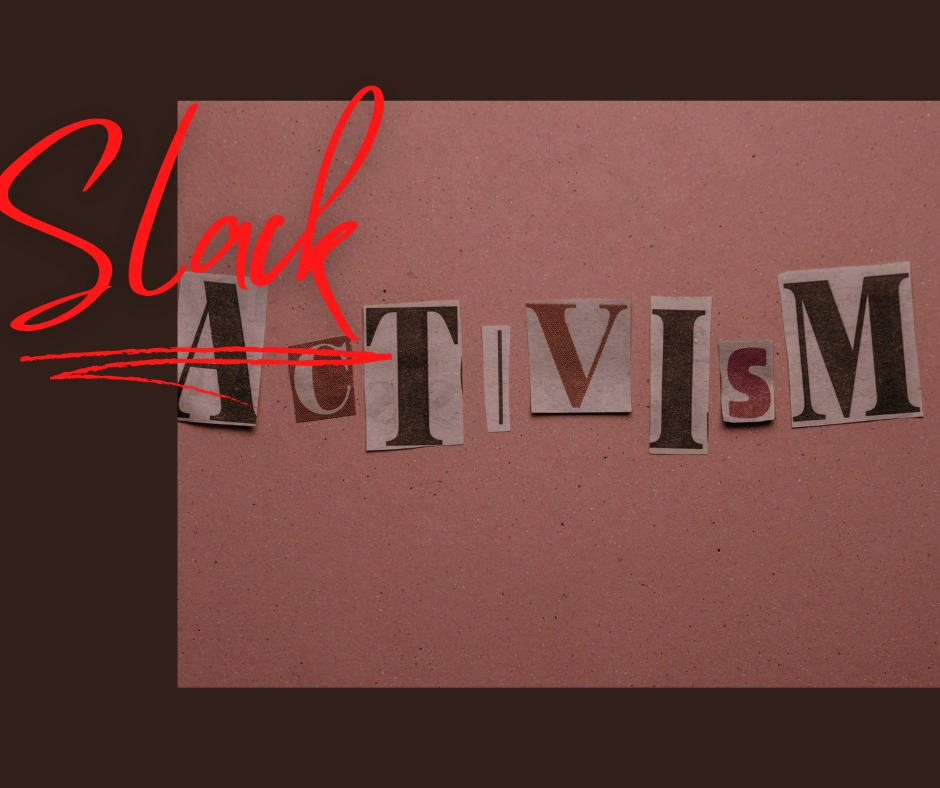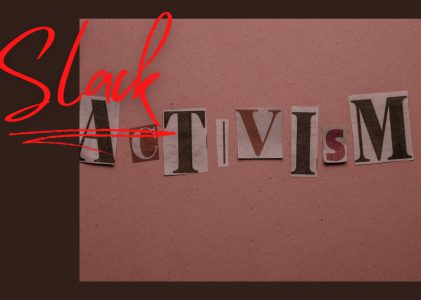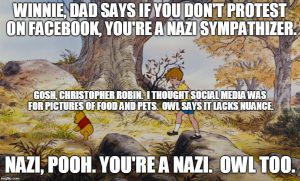
When you feel done with social media but…
Dear readers,
researching online and digital activism from the point of view of a person who tries to avoid social media as much as possible seems like an interesting task in itself. I do have Facebook and Instagram accounts although my activity goes in waves of moderate engagement and absolute disdain. I dipped my toes in Twitter a few years ago but admittedly didn’t like it. Even the thought of joining TikTok and posting videos of dancing awkwardly to top-of-the-pop tunes makes my blood curdle. In my experience, social media, with its chaotic bundle of often unwanted information that we get every time we open an app, contributes to feeling overwhelmed, overstimulated, and somewhat lost. However, I won’t delve into this topic for too long as Simon is going to explore this in more depth in his blog posts. This is just to add the perspective of the writer (myself). What I’m more interested in here is how personal and political merge in the social media world and what effect it has on the world outside of the digital, and I’m aware that this blog will be only touching the subject as there are so many aspects of it to consider.
Personal IS Political
Personal is political is a slogan coined in 1968 by civil rights worker and feminist activist Carol Hanish and it highlights the interconnectedness between private life and political power relations that are shaping our personal life (Lee, 2007). The slogan gains another level of meaning in the digital world. Social media platforms were first used as means to create personal networks and share life updates or cute cat videos with friends and family scattered across the world quickly became tools of political engagement. Posting, sharing, hashtags, and liking and tweeting are now a massive and very important part of virtually (pun intended) every social movement or political campaign. From Tahir Square through Gezi Park to Euromaidan, from pro-democracy protests in Sudan through #MeToo and Black Lives Matter to anti-abortion ban protests in Poland, the movements were increasingly built, organised, and shared via social media private channels of the users.
TikTok warriors
Often the movement or action is instigated by one viral tweet or a video shared on Instagram or TikTok without a need for a bigger organisation standing behind the action. Like in the example of a TikTok video that inspired young people to sabotage Trump’s rally in Tulsa, it only needed one #TikTokGrandma (known offline by the name Mary Jo Laup) and thousands of shares to instigate an online action that left a majority of the seats at “the greatest ever” Trump’s rally empty. The platform was deemed so dangerous that Trump tried to ban its use in the U.S.
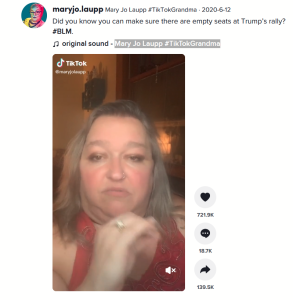
Clicking for change?
Digital activism is not escaping critique though. From the excitement and optimism of the early 2010s, we entered a phase of skepticism where the real-life value of a ‘like’, ‘share’ or a hashtag has been put under scrutiny. Have you heard of slacktivism, virtue signalling, keyboard warriors? These derogatory terms imply that online engagement in social causes might be just lazy non-committal clicking and showing off a ‘woke’ persona to the virtual audience without actually understanding the issues. This would be rarely followed by a real world engagement, and even more so, reinforces political apathy caused by exposure to too much online input. Is signing a petition on change.org or updating your Facebook profile picture with a sticker enough to change the world? The problem is much more complex though and needs its own article, but the pieces linked above explore these themes pretty well.
Are you an online activist?
How do you engage in activism via social media? Can a person call themselves an activist if they don’t engage in social media? Do you feel activist guilt if you miss something important that you should have shared with others? I’m very curious to hear your responses, my dear readers.
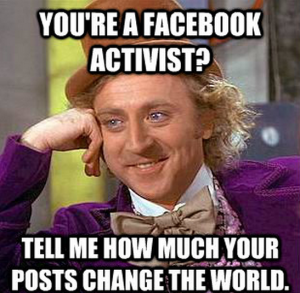
*DISCLAIMER:
Please keep in mind that the memes featured here are not meant to offend anyone, they’re just satirical prompts to help us question ideas of online engagement.
Thank you very much for reading to the end and I look forward to lively discussions directly on the post’s “Comments” section as well as on Facebook and Twitter. Do you click for change and does this make you an online activist? What do you think about keyboard warriors? And what is something you feel was missing in the analysis? I’m eager to know and to broaden my horizons. Thank you in advance for the engagement!
“Read” you next time!
